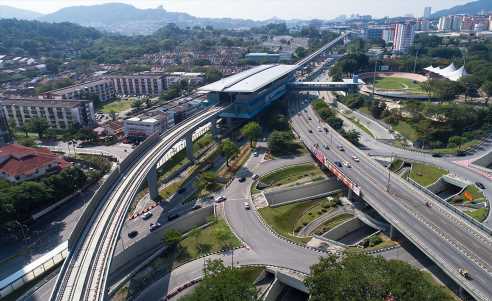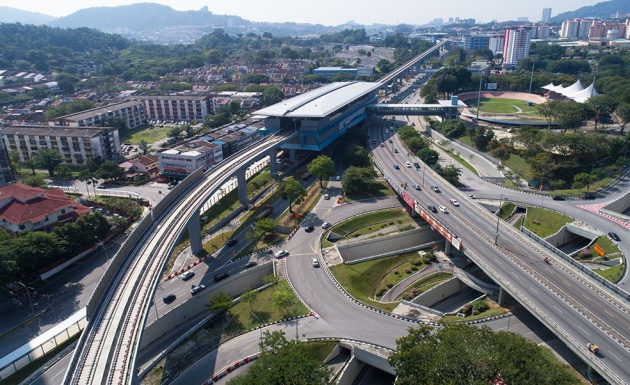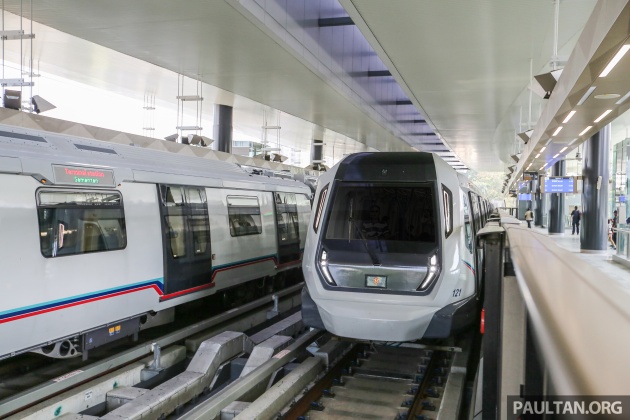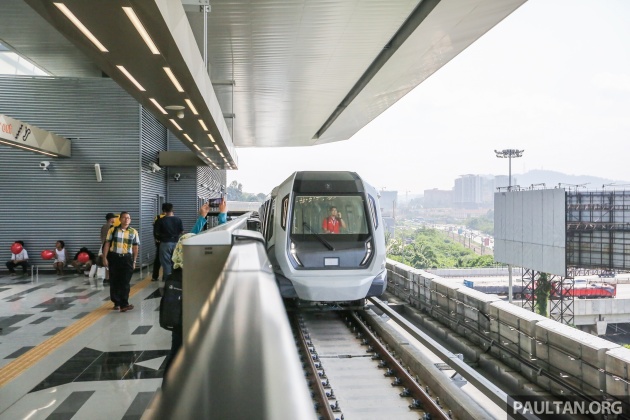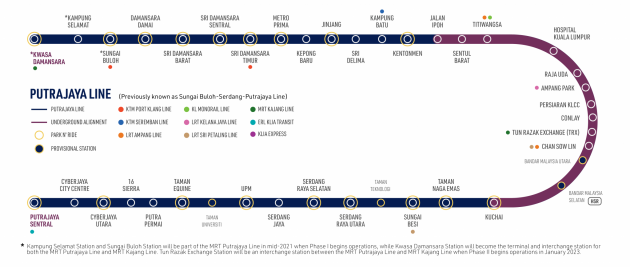The previously-suspended MRT3 project, which was supposed to complete the Klang Valley’s rail network by being the Circle Line loop, has been given the green light to proceed by the government, as announced by transport minister Datuk Seri Dr Wee Ka Siong earlier this month.
MRT Corp is being given three months to update the previously-conducted studies on the MRT3 project, which will be presented to the cabinet. The media was given a “refresher course” on the topic yesterday and here are some info from various reports from the event.
The proposal is looking at 30 stations, including some 10 interchanges. Some of the proposed MRT stations that will be confirmed in the coming months are Bukit Kiara, INTAN (National Institute of Public Administration), Sri Hartamas, Mont Kiara, Jalan Duta, Matrade, Jalan Kuching, Sentul West, Sentul East, Ayer Panas, Semarak, Setiawangsa, Ampang Point, Desa Pandan, Pandan Indah, Taman Perdana, Taman Midah, Hospital Canselor Tuanku Muhriz UKM (previously known as HUKM), Kuchai Lama, Old Klang Road and Pantai Dalam.
MRT Corp CEO Mohd Zarif Mohd Hashim was quoted by FMT as saying that the line will be around 50 km long, and 40% of it will be underground. The project will be built in five phases over 10 years, but each completed phase will be able to operate independently, as the Circle Line links other stations/lines together. “We are trying to do it in an overall 10-year period instead of seven. We need to further local technology development so we are not going to rush this project,” he said.
A big project such as this will inevitably raise questions about funding, specifically the government’s ability to bankroll the project. This is why MRT Corp is looking at private sector participation and financing in a “hybrid” system. They are looking at up to 30% funding from the private sector.
“The government is prepared to fund this project but they are also giving an opportunity for MRT Corp to come up with our own private funding proposal. Right now, we are looking at a hybrid model. The project is reliant on government support, but we are trying to help the government,” Mohd Zarif told the media, reported by the Malay Mail.
The MRT Corp chief described MRT3 as a game-changing project for the construction industry and urban development, with big infrastructure plans that will include affordable housing and transit-oriented developments (TODs). He said MRT Corp aims to use the project as a catalyst to spur the local supply chain and construction players through an “industry development” tender system.
Mohd Zarif added that contracts will be awarded based on technological adoption, among others, including the use of the Industrialised Building System (IBS) and Building Information Modelling, modern construction methods that are faster and more sustainable. It is said that the use of IBS might reduce foreign worker dependency, as it makes construction easier and safer by being off-site. It’s hoped that this might attract more locals. The tender process will start in August.
While the MRT Corp CEO did not disclose the total project cost they’re looking at, he told the media that is not too far from the estimates previously quoted by analysts, who have previously mentioned sums from RM20 billion to RM30 billion, according to The Malaysian Reserve. As always, a new rail line will spur economic growth, and “we want the multiplier effect,” Mohd Zarif said.
Expect more updates on the MRT3 soon, as the alignment and station locations are firmed up and private players enter the fray.
But even as plans for the Klang Valley’s third MRT line is drawn, the second one – the MRT Putrajaya Line, formerly known as the Sungai Buloh-Serdang-Putrajaya (SSP) Line – is almost ready to roll.
MRT Corp said earlier this month that Phase One of the RM30.53 billion project – from Kwasa Damansara to Kampung Batu – is 97% complete, and is on track to start operations in August this year. The company said that the remaining work involves testing and commissioning of mechanical and electrical systems as well as trial operations. Phase Two, which is from Kampung Batu to Putrajaya Sentral, is scheduled to start operations in January 2023, completing the 57.7 km line.
Related Cars for Sale on
Source: Read Full Article
